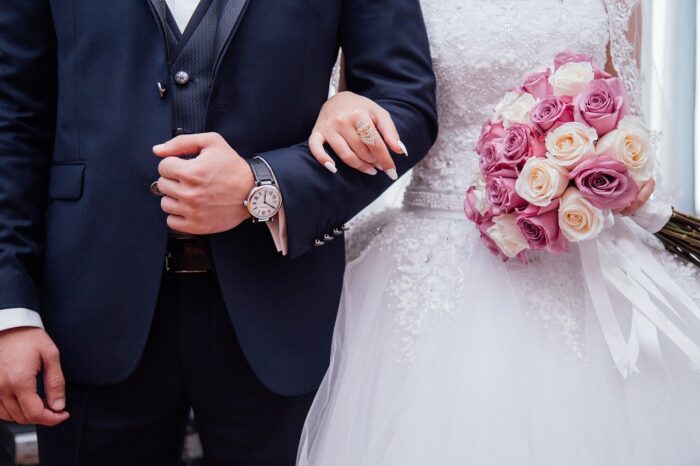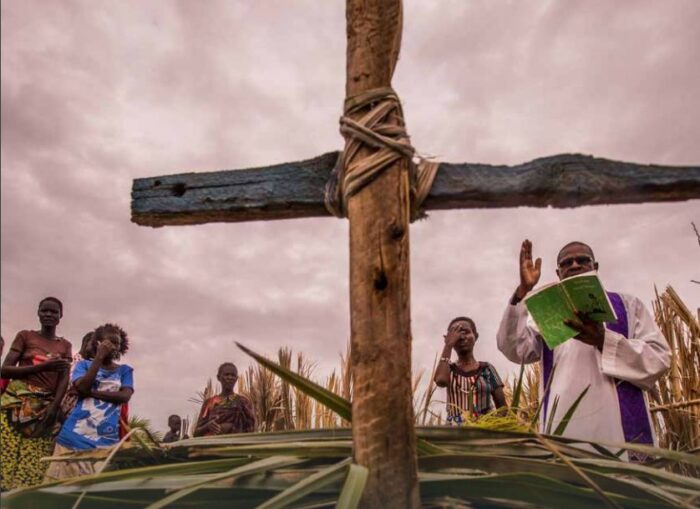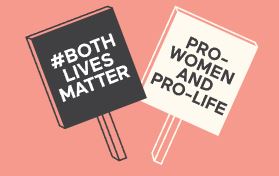
Voters on Tuesday enshrined a legal right to abortion in Ohio and rejected Republican candidates in Virginia to thwart the State Governor’s plan to ban abortion at 15 weeks.
The conservative-leaning state of Ohio approved a ballot referendum that adds a new right to “reproductive freedom,” including abortion and contraception, to the state constitution.
Over 56% of nearly 4 million Ohioans selected “yes” for the adoption of Issue 1, in contrast to only 44% who chose “no.”
The amendment guarantees that “every individual has a right to make and carry out one’s own reproductive decision,” including, but not limited to “abortion.”
Many opponents of the amendment fear that it will open the door to late-term abortion and eviscerate parental consent and notification laws for minors seeking abortions.
Meanwhile in the liberal-leaning state of Virginia, Democrats kept control of the state Senate and flipped the state House of Delegates on Tuesday in what is a major blow to Republican Gov. Glenn Youngkin’s efforts to pass legislation that would ban abortion at 15 weeks of pregnancy.
An effort by Youngkin and legislative Republicans to pass a ban was a key focus of the rhetoric from both Republican and Democratic candidates. Democrats sought to paint Republicans as a threat to abortion access and Republicans labelled Democrats as extreme on the issue.

The decision has important implications for euthanasia or assisted suicide.
The Federal Administrative Court in Leipzig said medical care includes “the use of an anaesthetic to cure or alleviate illness or pathological complaints,” and this does not entail (self-)killing.
“In principle, ending one’s own life does not have such a therapeutic purpose.”
Welcoming the ruling Dr. Felix Böllmann, of ADF International, said suicide is not a health service.
“The task of doctors, medical professionals, and also the personal environment is to save lives and provide support instead of killing,” he said.
He added that the current legal situation remains unsatisfactory since a prior judgement of the German Constitutional Court made a dramatic shift that left the most vulnerable people in society unprotected from the dangers of ‘assisted dying’ while allowing commercial and ideological interests to dominate the scene.
“Nevertheless, It is good that the federal administrative court mentions and strengthens the State’s concept of protecting the life of every individual. Everyone has a right to life. And everyone has the right to have their life protected from and by everyone. Indeed, the state has a legal obligation to systematically protect every human life”.
https://adfinternational.org/adf-international-welcomes-germanys-top-administrative-court-ruling-on-euthanasia-statement-by-dr-felix-boellmann-difference-between-alleviation-of-suffering-and-killing-has-been-confirm/

The Legal Affairs Committee (JURI) of the European Parliament agreed on a proposed EU regulation to ensure parental rights granted in one member-state are recognised across the Union independent of the national laws in other states, even if the child is acquired through surrogacy.
This means, for instance, if two people were declared the parents of a child born via surrogacy in one state, even if they have no biological connection to the child, would automatically be regarded as the legal parents of the child if they were to move to any other state. This would circumvent the national laws for establishing legal parenthood and enable ‘surrogacy tourism’ within the EU.
Expressing concern at the development, the Federation of Catholic Family Associations, FAFCE, said that “a child is not an entitlement and parenthood is not a right; rather, a child is a gift and parenthood is a responsibility.”
They added that the current proposals would impose on states the recognition of parenthood established in another state “(i) irrespective of how the child was conceived or born. In a nutshell, it confirms that it shall also cover children born through surrogacy; and (ii) irrespective of the status of the persons asking to be recognized as the parents of the child, going as far as to the so-called “multi parenthood”, as explicitly mentioned in the voted proposals”.

Making assisted suicide legal for people with unbearable suffering would be unethical, according to a review of proposals for the Channel Island of Jersey.
The panel of medical law experts had “serious reservations” about allowing assisted dying (AD) on that ground, deeming the term too vague.
However, they said proposals for those with a terminal illness were “ethically appropriate”.
The review panel also looked at whether AD should be limited to Jersey residents, to avoid Jersey becoming a “suicide/death tourism” destination.
They said while an open regime might generate income and meet the needs of those who live where AD is illegal, “we suspect the case for restricting access to residents is stronger”.
Age eligibility was also considered, with the review concluding that AD should be restricted to adults.
But, it added, if AD for children is to be considered, the views of children themselves would need to be sought.
The report said healthcare professionals (HCPs) “should have the right to conscientiously object to direct participation in AD, not least because AD is a controversial practice, which does not serve the usual aims of medicine to heal/cure”.

Marriage is not and never was designed with women’s happiness in mind, says one Australian author who is urging women to avoid it altogether.
Clementine Ford says her new book, “I Don’t”, is “an excoriating critique of marriage and the lies that are told to keep women enlisting into its service”, adding that, “everything we’ve been told about marriage, from start to finish, is a diabolical deception”.
Describing marriage as a “cage”, she says when you peel back the layers of history and propaganda, “it’s impossible not to want to completely destroy this inherently misogynistic institution”.
“Marriage is an unsalvageable lie, designed to keep women in service to patriarchy and away from realising our full potential. We should reject it entirely, and refuse on principle to willingly add our names to a list built primarily on the backs of women who had no choice, no rights and no freedom,” she writes.
Speaking to Newstalk, she described the enduring appeal of marriage the result of a “PR campaign that has been run by the marriage industrial complex to make women want those things”.

A lack of security is impoverishing the Church in Nigeria, the bishop of Nigeria’s Sokoto Diocese said this week, noting that in the northern part of the country alone, more than 30 million naira (about €35,000) has been spent rescuing kidnapped priests, seminarians, and parish workers from Islamic militants.
Bishop Matthew Hassan Kukah outlined the travails of his people in an interview with local media.
“We have had our churches burnt down, the killing of Deborah Emmanuel [a Nigerian Christian student who was murdered by a Muslim mob], our cathedral was almost burnt down, and my priests were almost killed,” Kukah said. “I have lost a seminarian, I’ve lost a priest; we have spent over 30 million naira, which we don’t have, to rescue our pastoral agents from kidnappers.”
The vocal bishop lamented the lack of support to cope with the situation in the embattled region, saying: “I cannot remember anybody from some part of Nigeria calling me to say ‘Bishop, we heard what has happened to you. What can we do, is there any way we can help, are you safe?’”
“We are all part of one body, when one part hurts, the rest of the body hurts, but we in northern Nigeria have the feeling that we are hurting alone,” said the 71-year-old bishop, who has been the local ordinary of Sokoto since 2011.

The three opposition parties willing to form a new Polish government after a recent election are working on a coalition deal that makes no mention of abortion.
The Governing party who lost the election had warned that the opposition would bring in a radical abortion regime if elected.
However, Donald Tusk’s Civic Coalition (KO, EPP/Greens), the Third Way bloc (Renew/EPP) and the Left (S&D) are divided on how to tackle the controversial issue.
Abortion is legal in Poland only if the pregnancy endangers the life or health of the mother or is the result of rape or incest.
However, those categories account for a miniscule number of abortions meaning the health ground is strictly interpreteted.
According to statistics from Poland’s Ministry of Health, of the 1,110 abortions performed in Polish clinics in 2019, 1,074 were on eugenic grounds.
The Constitutional Tribunal’s decision effectively declared a near-total ban on abortion.
During their election campaign, the Left and KO promised to legalise abortion up until the 12th week, while the Third Way wants to return to the 1993 compromise under which abortion was legal only when a fetushas a severe genetic abnormality, when the mother’s life is in danger, and when the pregnancy happened as a result of rape.
According to MP Dariusz Wieczorek, who represents the Left in the negotiation team, the parties “all agree about the need to cancel the Constitutional Tribunal’s decision as soon as possible”.
While the coalition agreement does not mention abortion, he said a bill on abortion rights is likely to be introduced sometime in 2024 after discussion within the coalition.

Following those nations, ICC President Jeff King said in an interview, are India, Iran, China, Pakistan, Eritrea, Algeria, Azerbaijan and Indonesia. The report is online at www.persecution.org, and the group is calling for a day of prayer on Sunday.
Some of the nations are relatively new on the list, while others have had longstanding issues of religious freedom for Christians and others. In Nigeria alone, Mr. King said, 100,000 Christians have died as a result of religious persecution in the past 20 years.
“It’s the numbers of deaths,” he said about Nigeria’s ranking atop the list. In addition, he said an estimated 3.5 million Christian farmers in the country have been displaced or had their farms taken.
Mr. King said the split in Nigeria between a Muslim-dominated north and a Christian-dominated south could lead to a civil war and subsequent displacement of population that would “dwarf any refugee crisis we’ve had in modern history.”

A Carmelite convent in Dublin has become the second enclosed order to be targeted by a new tax on undeveloped land, after their appeal to An Bord Pleanala (ABP) was denied.
The news comes after the Poor Clares in Cork City were hit with a tax aimed at dealing with companies and individuals who hoard residential sites.
The Carmelite Monastery of St Joseph, Kilmacud, in South Dublin, home to nine Carmelite sisters, has been included on draft maps for the Residential Zoned Land Tax (RZLT).
This could see the order facing a bill in the thousands annually, as the RZLT is calculated at 3pc of the market value of lands.
The convent appealed the decision saying the new tax “would interfere with the sisters’ way of life” as, being an enclosed order, the grounds are vital to the contemplative nature of the community.
However, ABP denied their appeal after its inspector concluded that no reasons had been identified that would prevent development of the order’s lands for residential purposes.

Annual abortion rates in Northern Ireland have almost doubled since Westminster ordered the decriminalisation of abortion, according to an analysis of official figures.
A Freedom of Information request to the Department of Health by the pro-life advocacy group Both Lives Matter reported that, as of 23rd May 2023, 5,648 abortions have taken place in NI since the abortion law was changed at the end of March 2020.
Dawn McAvoy, Both Lives Matter lead said, “Nearly 6,000 abortions on average across the three years since the new abortion regulations were laid out at the end of March 2020, signals that annual abortion rates for NI have nearly doubled”.
She added that around 2,000 lives were being saved from abortion every year by the previous law’s protections for human life, which amounted to 100,000 lives for the duration of Northern Ireland’s exemption from England’s radical 1967 abortion regime.